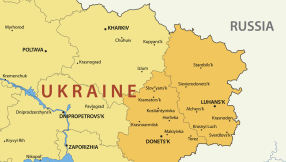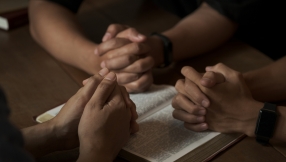Archbishops question need for elected House of Lords
Dr Rowan Williams and Dr John Sentamu warned that reforms to the House of Lords could deprive it of expertise and amount to an unjustified expense at a time of economic uncertainty.
The Government’s Draft Bill proposes a House of Lords of 300 members, with 80 to 100 per cent of peers elected by proportional representation.
If the House of Lords were to maintain an appointed element, the number of Church of England bishops would be reduced from 26 to 12. If the Government decided upon a wholly elected House, the bishops’ seats would be abolished altogether.
The Archbishops outline several concerns with the proposals in their submission to the parliamentary joint committee on the draft Bill.
While there was a “compelling” case for reform prior to 1999 when the House of Lords still consisted of hereditary peerage, they argue that reforms since then to increase the appointed component to around 85% have “largely addressed that issue”.
Although acknowledging concerns for democratic legitimacy, they question the rationale to go beyond recent changes by making the Upper House partially or wholly elected.
Instead, the Archbishops argue that the decision to reform should be based on whether the changes will enable Parliament as a whole to serve the people better.
“Any reform that enables parliament as a whole to maintain a wide and enduring level of public respect is likely to attract our support,” they said.
“However, the declared view of the three main parties that the Upper House should be wholly or mainly elected does not appear to proceed from any settled view as to the fundamental purpose of the second chamber of the legislature, what its powers should be and – crucially – what its relationship should be with the House of Commons.”
The Archbishops cautioned politicians against the introduction of “far-reaching changes which sweep away all the familiar landmarks”, and allowing the debate about reform to be influenced by “abstract theory or supposed universal norms” about the best form of democratic governance.
Instead, they expressed an openness to “adaptation” and specific reforms that address “manifest problems” in the current system.
Rather than improving the democratic process, the Archbishops fear that an elected Upper House may lead to gridlock if peers feel more inclined to challenge the decisions of MPs.
The Archbishops continue: “At a time of considerable public concern over our national political life and the conduct of those who serve the nation in Parliament, it must at the very least be highly questionable whether a reformed House consisting very largely or wholly of those elected from party lists would increase public confidence in our constitutional arrangements, or be a recipe for effective and accountable government.”
They go on to question whether a salaried House can be justified in the face of Britain's economic uncertainty and government spending cuts.
Changes, they state, may result in “depriving Parliament of the expertise brought far less expensively by a very substantial appointed component”.
“In summary, if as we believe the second chamber should remain essentially a revising chamber and if, as we also believe, the primacy of the House of Commons is to be maintained, the argument that such a chamber can only be effective and have proper legitimacy if it is wholly or mainly elected is no more than an assertion.”
The Archbishops welcome proposals to maintain the presence of Lords Spiritual in the Upper House and ensure the presence of those who have had “senior responsibility in churches and faiths other than the established Church”.
They said: “If, as successive governments have accepted, there is a continuing benefit to this country in having an established Church, the presence of the Lords Spiritual in the House of Lords is one of the most important manifestations of that special relationship between church and state.”













